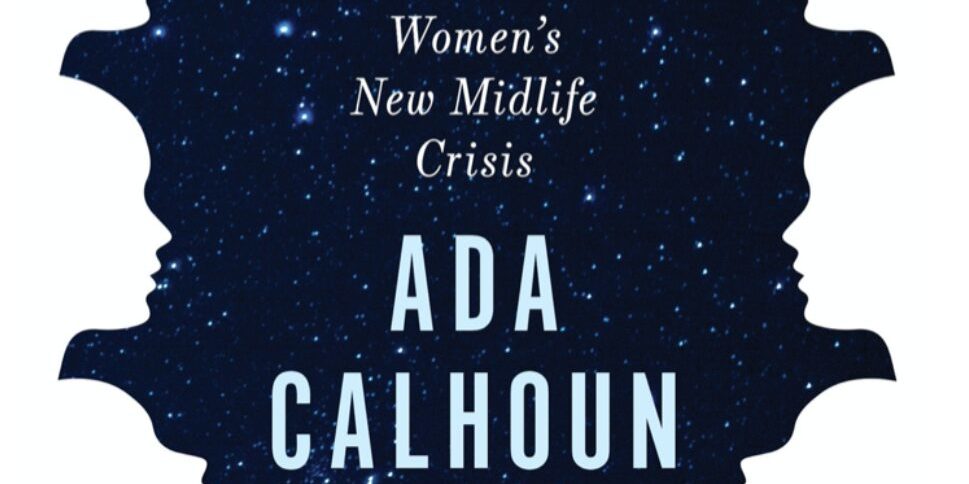
I’ve been struck by the publicity surrounding Ada Calhoun‘s new book, Why We Can’t Sleep: Women’s New Midlife Crisis, which takes as its subject the creeping insomnia, restlessness, and burnout Calhoun has noticed among American women of her own generation. While we wait for the book itself to arrive, a couple soundbites of Calhoun tracing the shape of today’s little-l laws were too tempting not to post. And probably goes without saying but her diagnosis extends beyond the demographic in question; as a non-GenX lady, I recognize much of this in my own life. Shades of #seculosity abound! (Note how many times the word “enough” is used). This first bit is from an interview she did with NPR:
“One thing that a sociologist who studies the generations told me is that our generation [Gen X] tends to judge ourselves based on everything. So if, you know, in the past the question was, how nice is your home? Or how good are you at your job? Now it’s like, it’s all of the things. So it’s – are you a good parent? Are you good at work? Are you – you know, is your house nice? Are you in shape? Are you recycling? Like, it’s every single factor in life you have to excel at. And I think that level of pressure is unsustainable.
These next paragraphs are taken from Calhoun’s Q&A with Maria Shriver:
What I think happened to women in this generation was when we were girls we were told we could “be anything, even president!” And as I was interviewing all these women around the country I heard from them that the idea that they could do anything somehow morphed somehow into a directive that they must do everything—and do it all effortlessly. In middle age, they are likely to find that they haven’t lived up to this fantasy they had for themselves, epitomized by the crimes against humanity that were those Enjoli perfume ads about bringing home the bacon and frying it up in a pan. If women bought into that idea (as many of us did), they may have a family but not a career or vice versa and then feel like they are not doing enough. Even a lot of women I talked to who were doing a stressful full-time job and a lot of caregiving (the classic definition of “it all”) felt like they had failed in some way—maybe they had both work and family but they weren’t in good physical shape, their kids weren’t getting good grades, they worked all the time but still couldn’t afford a nice vacation, or they were just very, very tired…
In interviewing these women, I learned that a lot of the stress seemed to be coming out of shame—they felt they should be more successful, maybe, but also more grateful. They would say, “I’m so lucky, I have no right to complain.” And then they would describe what they expected from themselves and what they were dealing with. The responsibilities and pressures would be massive, but the thing that seemed to be pushing them over the edge into despair was this idea that they were whining if they admitted how hard it was. They would dismiss what they were feeling by making a joke about #FirstWorldProblems. And they would tell me that they knew if only they could do enough yoga or find the right herbal tea or learn about CBD oil, the feeling of unease would go away. This book tries to show that no, if you are stressed out it isn’t necessarily that you did something wrong or you haven’t made the right chore chart—maybe the deck is stacked against you.

COMMENTS
4 responses to “Why Ada Calhoun Can’t Sleep”
Leave a Reply













All this is true for Boomers, the Silent Generation and whatever generation came before we started giving them cutesey names. It’s being female and being shamed about never being good enough. I’m sorry to say that churches have always been prime sources of this kind of guilt. Women were taught to look up to those who basically did 95% of the work and were paid nothing. That mindset still exists and gets passed down even to daughters, granddaughters and beyond who might not care less about the church, but still deal with the same bull***t in the secular world.
Ooh!
Also, are you familiar with the essay Enjoli? More on sobriety but quite related: https://humanparts.medium.com/https-medium-com-kristicoulter-the-24-hour-woman-3425ca5be19f.
As a middle aged Gen x woman, I can say that this is spot on! We are all in therapy trying to figure out how to fix ourselves and we all fell shame about that. The answer is not to try harder and do better. It never was.
[…] to hear how much the book speaks to her own context and phase in life – and that of her Why We Can’t Sleep peers. Super encouraging and accessible conversation (her book is great btw. Finally, Jason Montoya was […]